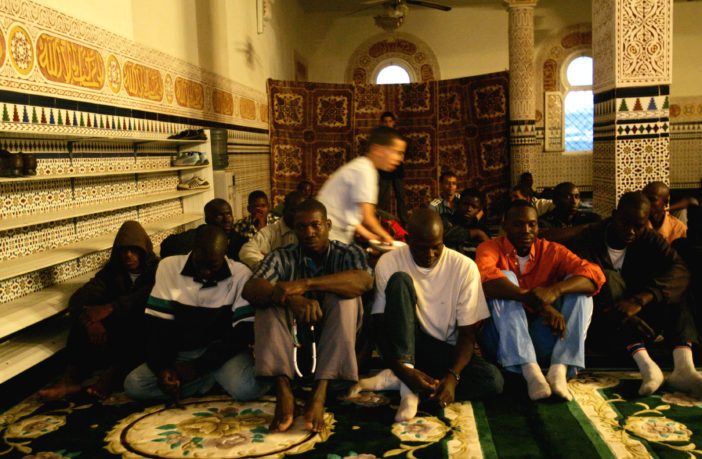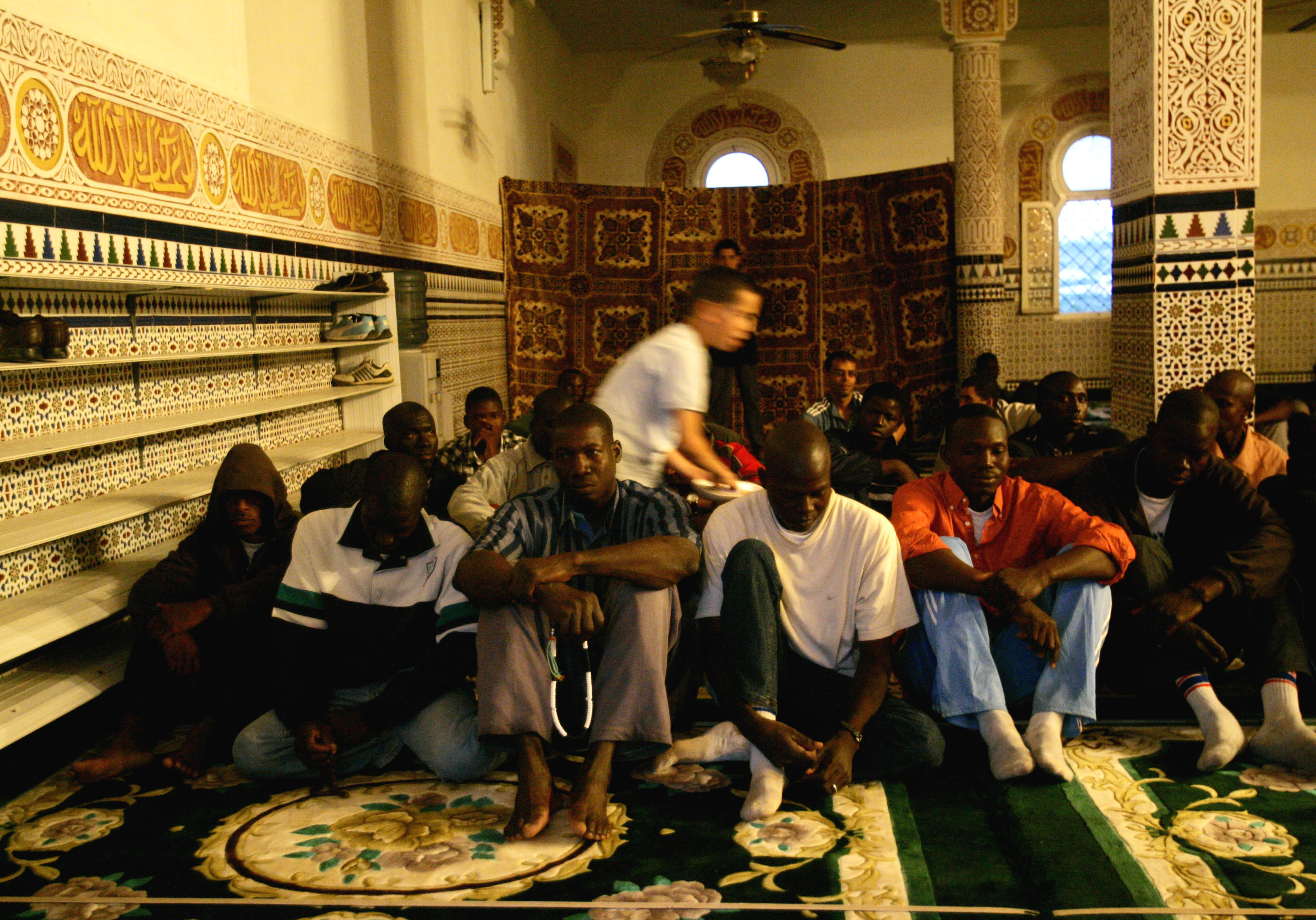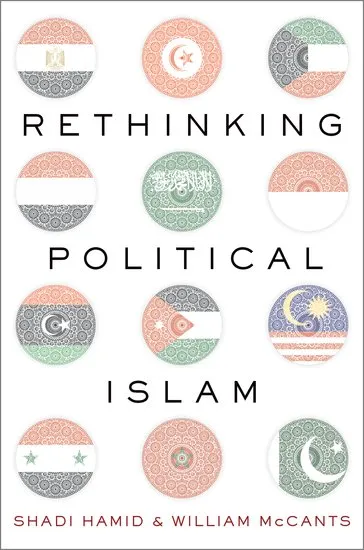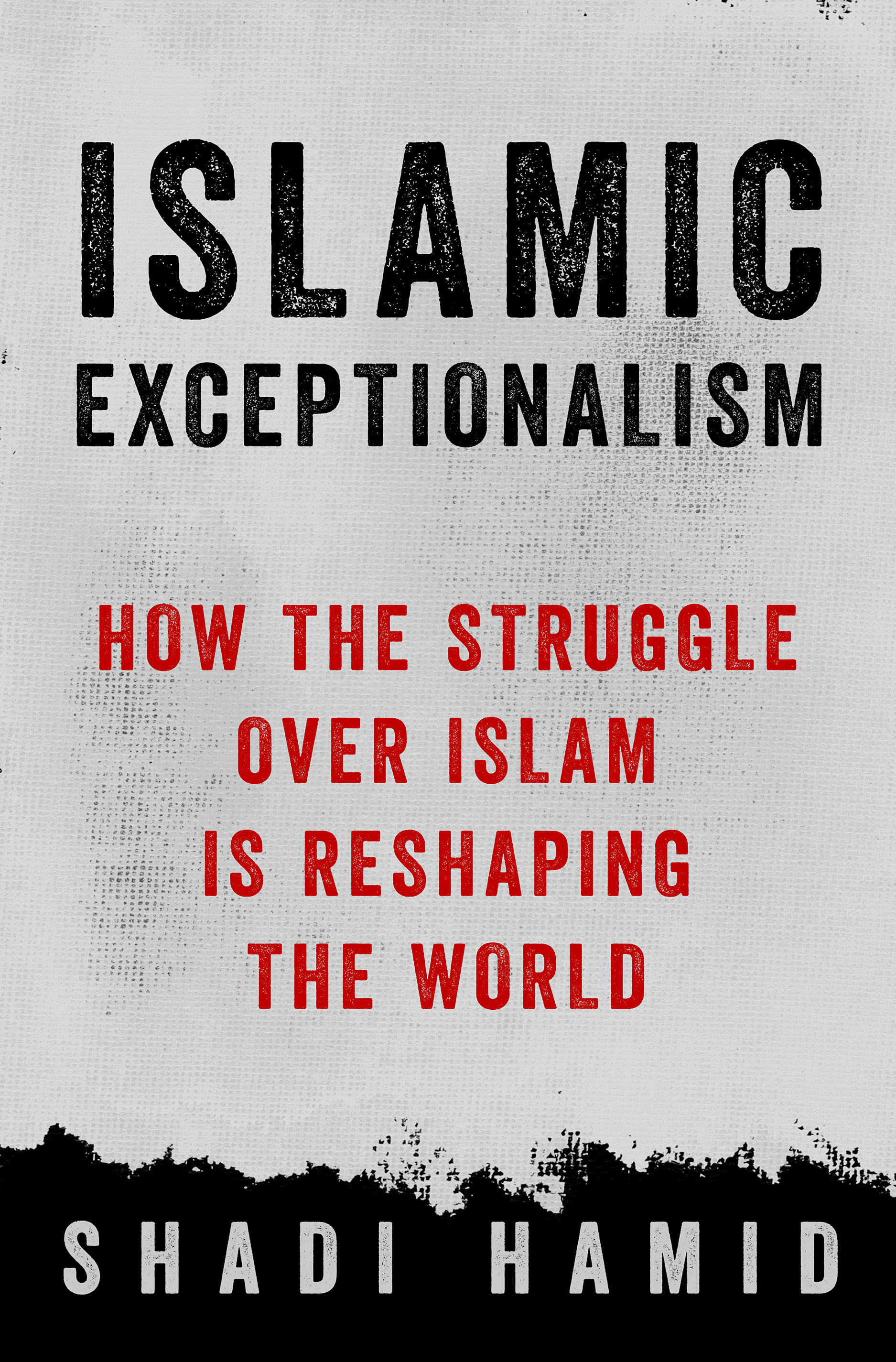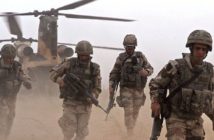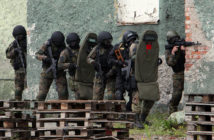Brookings
Sarah Alaoui
In the increasingly competitive market of Islamic soft power, Morocco is another regional player that deploys religion to assert its official legitimacy and position itself as a global leader of “moderate Islam.” The kingdom’s imam training programs in Europe and international conferences on promoting religious tolerance have been well publicized, but while the West is an important audience for Morocco’s efforts, the focus of its religious outreach has largely been sub-Saharan Africa. These efforts have increased with King Mohammed VI’s “pivot” to the region, in which religion has played an indispensable role in cementing economic and political relations. Given the deep, historical religious and cultural ties between Morocco and West Africa, in particular—and a mutual interest in continuing to strengthen bilateral relationships—Morocco’s export of its brand of Islam has generally been welcomed by receiving states.
HISTORICAL TIES BETWEEN MOROCCO AND SUB-SAHARAN AFRICA
Social, cultural, and religious ties between Morocco and its sub-Saharan neighbors date back centuries to robust trade exchanges and the spread of Islam in Africa. Not unlike today, the religious and economic ties between them were mutually reinforcing. Trade routes and commerce brought Sufi traditions to West Africa, and notably to Senegal. Brotherhoods including the Qadirriyya and the Tijaniyya played a crucial role in spreading Islam in the country, and Sufism’s relatively mystical character adapted well into Senegalese society. During the French protectorate, religious leaders from Senegal would travel to Fez to pay homage to the mausoleum of the order’s founder, Sheikh Ahmed Tijani. Today, Fez remains a holy destination for Tijani Muslims.
In the years leading up to independence from the French, ties between Morocco and its sub-Saharan African neighbors remained close. One official account detailing Moroccan-West African ties mentions that a Senegalese sheikh, Ibrahim Niasse, was one of the few individuals who visited King Mohammed V while he was in exile in Madagascar in 1953. Morocco was also active in supporting African independence movements and was a principal founding member of the Organization of African Unity (now African Union).
It is difficult to speak about Morocco-Senegal ties without touching on the religious element. In 1985, the League of Moroccan and Senegalese Ulama (Ligue des oulémas du Maroc et du Sénégal) was created under the patronage of King Hassan II and Senegalese president Abdou Diouf to officially recognize the two countries’ religious bond. More than a simple acknowledgment of bilateral relations, the organization came to represent a strategic tool for the Moroccan kingdom to assert its religious leadership south of the Sahara.
In 1963, King Hassan II hosted the first durus hasaniya or “religious discussions” during the holy month of Ramadan. This series of engagements, which continues to this day, brought together religious leaders and scholars from around the world—and especially from sub-Saharan African countries—for conversations about different Islamic topics. Discussions often raised themes of tolerance, peace, and coexistence, aligning with the Moroccan model. Durus sessions were recorded, and audio and videotapes delivered abroad to religious institutions and universities, thus spreading the message of Moroccan Islam far and wide.
At a 1980 press conference in Taif, Saudi Arabia, King Hassan II reiterated his country’s mission of preserving and spreading the Moroccan Islamic model in Africa through universities, mosques, and religious leaders and scholars. Despite withdrawing from the African Union in 1984 (and only rejoining in early 2017), Morocco remained active in African affairs and continued to leverage historic ties to nurture bilateral relations with countries in the region.
MOROCCO’S BRAND OF ISLAM
What exactly does Moroccan Islam look like? In simple terms, the country officially abides by a religious formula comprised of three pillars: Sunni Maliki Islam, the Ash’ari doctrine, and Sufism. According to the state, it is this particular amalgam of Islamic beliefs, coupled with Morocco’s openness and “perpetual interaction with cultures and civilizations,” that gives Moroccan Islam its oft-touted flexibility and moderation. Sufism is increasingly invoked as a key ingredient of spirituality in Morocco’s brand of moderate Islam. These components—law, creed, spiritualism, and culture—together comprise the Moroccan brand of Islam, differentiating it from other interpretations of Maliki Islam elsewhere around the world.
Sufism plays an instrumental role in Morocco’s understanding of Islam. The tradition fits neatly with the quietist, spiritual image of religion that the country wishes to project. This quietism is necessary in a country where the king rules over both the secular and spiritual spheres, and heavily relies on Islam—and a purported lineage to the Prophet Muhammad—to legitimate his rule. This control of the religious sphere has only increased post-September 11. Under his title ofamir al-muminin, or commander of the faithful, the Moroccan king is designated as a spiritual leader of Muslims, and as such, cannot be seen to favor any religious order over another. However, the Moroccan state understands the symbolic asset of Sufism and continues to emphasize it as a key part of its religious identity, often extending support to Sufi exchanges between Morocco and West Africa, particularly those of the Tijaniyyah Sufi tariqa.
The Tijaniyyah is one of the largest orders of Islam in West Africa, and worshippers continue to make annual pilgrimages to the zawiya (religious monastery) in Fez, where the order’s founder, Ahmed Tijani, died. Each year, Senegal, where close to half of the country’s Muslims follow the Tijaniyyah order, cultural events are hosted at the Grand Mosque of Dakar—funded and inaugurated by King Hassan II in 1963—to remember Tijani. Morocco often sends official delegations of ministers and diplomats to attend, and who visibly serve as a reminder of the country’s role in helping preserve and honor the Sufi order.
A key figure in Morocco’s religious branding efforts is the Minister of Endowments and Islamic Affairs, Ahmed Toufiq, who is a follower of the Boutchichiya Sufi order. Appointing a Sufi to this visible role is another indication of Morocco’s efforts to embrace this identity that has become associated with moderation in religion. Toufiq replaced the more conservative Abdelkebir Alaoui Mdaghri who served under King Hassan II. He also has a strong background in African affairs, having served as the first head of the Institute of African Studies in Rabat from 1989 to 1995. He is a frequent presence in the king’s delegation visits throughout the continent.
The idea of a trademark Moroccan Islam was especially emphasized following the 2003 Casablanca bombings, in which 45 were killed. During an official speech a few months after the attacks, King Mohammed VI was firm about the country maintaining its moderate interpretation of Islam and warned against foreign religious imports that were incompatible with Moroccan identity. Morocco’s concern over national security extends to developments outside of its borders as well. The country pledged to extend security assistance to the G5 Sahel countries (Mauritania, Mali, Niger, Burkina Faso, and Chad), hoping to shield itself from trans-border threats.
PRESENT-DAY EXPORT OF MOROCCAN ISLAM
For governments concerned with religious extremism and terrorism, the Moroccan religious model is appealing, and demand for its product has increased. Religious conventions signed between Morocco and other African countries rose from five between 1975 and 1999 to 36 between 2012 and 2017. Perhaps the most visible project in the country’s religious export efforts is the $20 million Mohammed VI Institute for the Training of Imams, Morchidines and Morchidates in Rabat, which trains both male and female Moroccan and international scholars. The Institute is at the heart of the kingdom’s efforts to reformulate a tolerant, quietist Islam, one that supports its counterterrorism policy and security interests more broadly. Notably, this interpretation of Islam is indirectly presented as an alternative to the stricter Wahhabi strand of Saudi Arabia, a close Moroccan ally.
Most of the institute’s students come from Mali, Guinea, and Côte d’Ivoire, countries whose governments are concerned with religious violence and see an antidote in Moroccan Islam. In 2013, Morocco signed an agreement to provide two-year training to 500 Malian imams to combat extremist ideology and promote Maliki Islam. In addition to religion, the curriculum includes social sciences such as philosophy and psychology, and vocational training in diverse fields such as sewing and electrical engineering. Students are also taught the Quran, hadith, Islamic jurisprudence, and are trained to become religious ambassadors while remaining authentic to their local cultures. In countries like Mali and Senegal, there is no comparable, institutionalized structure to train imams that offers the diverse type of education available at the Moroccan Institute.
As requests increased from African countries for Moroccan religious training, the Moroccan government also launched the Mohammed VI Foundation for West African Ulama for religious scholars to exchange experiences and best practices, and to ultimately ensure “the protection of the Muslim faith and the spiritual unity of the African peoples against all violent trends.” Once again, Morocco’s religious leadership in Africa is highlighted under the goal of bringing together African Muslims under a Moroccan-defined Islam.
During fieldwork conducted in Senegal in 2015, Ann Marie Wainscott interviewed political and religious elites who viewed Morocco’s religious outreach to their country as legitimate and a natural extension of historic religious and cultural tiesThis feeling of proximity heavily stems from the Moroccan king’s constitutionally protected title of amir al-mu’minin and the royal family’s claim to direct descent from the Prophet Muhammad. Moreover, these religious activities are further strengthened by significant bilateral economic cooperation. As some of Wainscott’s respondents pointed out, Morocco’s outreach is in stark contrast to that of Saudi Arabia or Iran, which are considered as foreign in comparison. Morocco’s religious export is not viewed with suspicion in West Africa, as the majority of the population practices a similar form of Islam. Moreover, while Saudi Arabia and Iran spend money to promote religion for geopolitical gains, Morocco is able to use existing religious affinities to make inroads for business gains.
Religious leadership aspirations aside, Morocco’s faith-based diplomacy has served to complement its economic goals on the continent. Taking advantage of increased growth and a burgeoning middle class in the region—and seeking to diversify away from its traditional trade partners in economic crisis-ridden Europe—Morocco increased its focus on sub-Saharan Africa. In June 2015, King Mohammed VI concluded a three-week tour in Africa—including stops in Senegal, Guinea-Bissau, Côte d’Ivoire, and Gabon—and signed dozens of economic and political agreements along the way. In total, the king has had more than 50 visits to around 30 African countries. Announced projects include investments in affordable housing and construction of cement factories. Moroccan banks have increased branches in Francophone Africa, and the continent has become an important market for the state-owned phosphate company, the Office Chérien des Phosphates (OCP). Significantly, Morocco has also been able to position itself as a key hub for international countries wishing to enter the African market.
When looking at Morocco’s religious outreach, one cannot ignore the country’s ongoing competition for influence with its neighbor, Algeria, and its claims to the Western Sahara. By bolstering its African leadership credentials and building political leverage, Morocco is hoping to gain support for its claims to the disputed Sahara territory. With the decades-long conflict still in a stubborn stalemate, Morocco and Algeria are both relying on various channels of diplomacy to plea their case. However, in terms of religious diplomacy, Algeria’s efforts pale in comparison to that of its neighbor. Moreover, its president does not enjoy the religious legitimacy bestowed through the Moroccan king’s title.
CONCLUSION
Morocco has an undeniable advantage in the religious diplomacy arena of sub-Saharan Africa. The country benefits from centuries-old cultural and religious ties with its African neighbors, and both sides are able to take advantage of the current king’s economic pivot to the region. Morocco’s unique brand of Maliki Islam, with its pronounced fusion of modernism and Sufism, allows it to export its model not only within the continent, but also to the West, as it has done through its imam training programs in Europe. With counterterrorism at the forefront of global agendas, the country is likely to continue making the case for Moroccan Islam for the foreseeable future—and doing so more successfully than many of its Arab neighbors.




